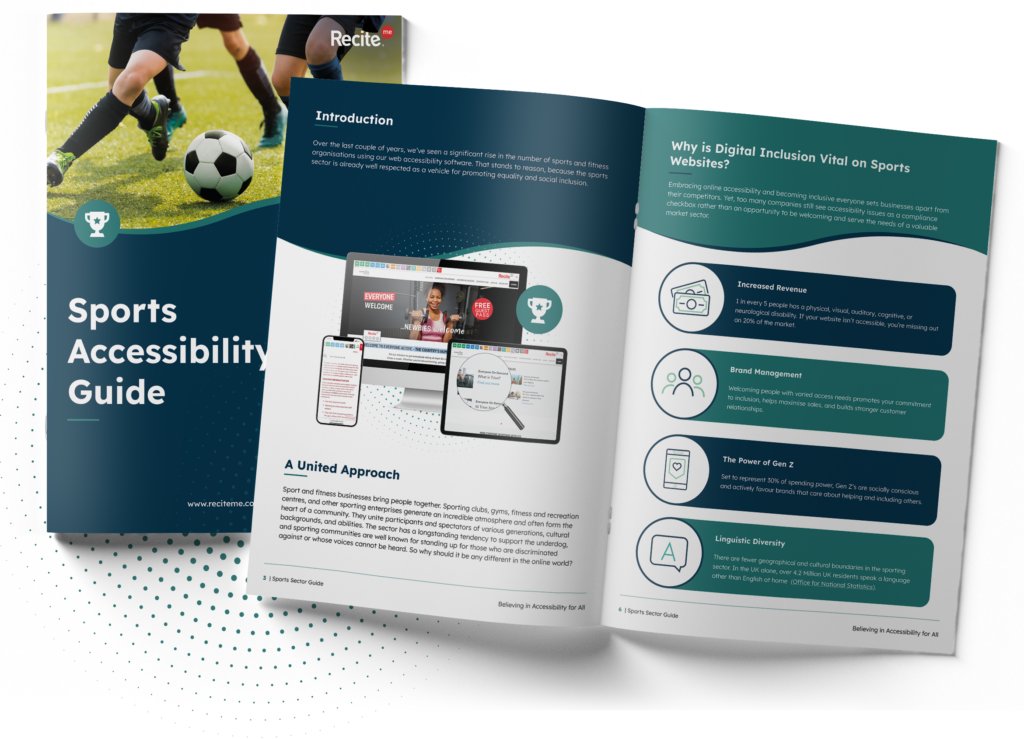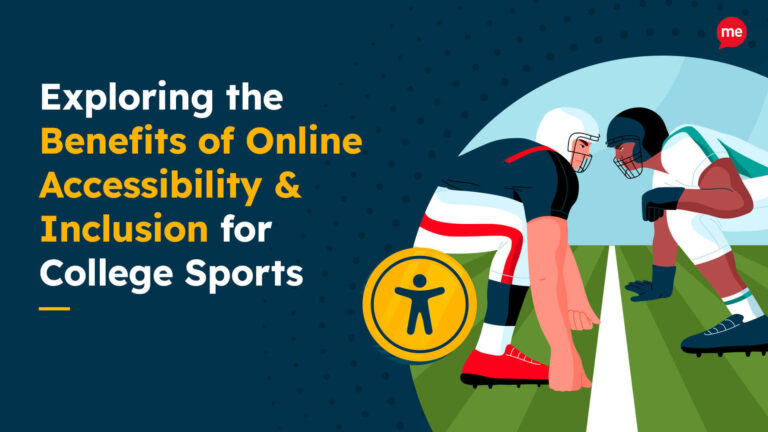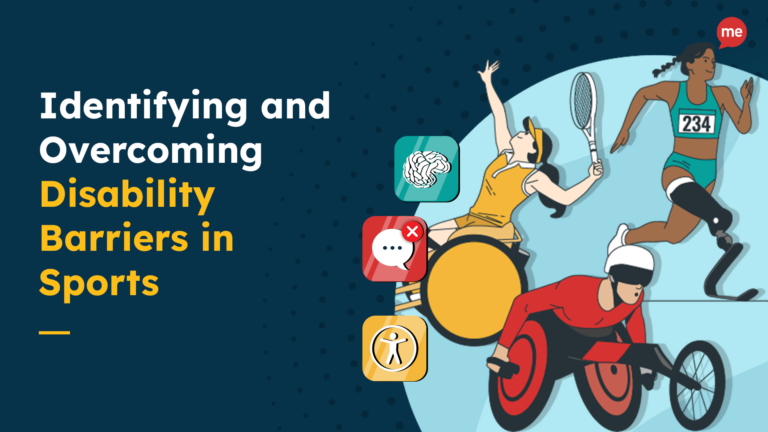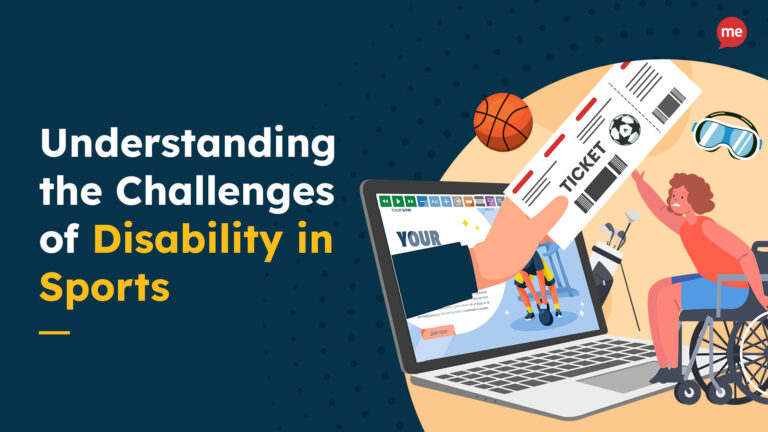In the digital era of sports, where websites serve as pivotal hubs for the community, an aspect that is often overlooked is website inclusivity. While these platforms provide fans with a gateway to connect with their favorite teams, book tickets, and check fixtures they can also unintentionally leave website visitors feeling excluded. This can stem from a variety of reasons including the imagery you use, language choice, or how the web page is built. Explore our list of do’s and don’ts below to make sure you aren’t unintentionally excluding people online.
The Do’s
Actively showcase diversity and inclusion in digital content
The language used should be inclusive and welcoming to all visitors, avoiding jargon or terms that may be exclusive or alienating to certain groups. Additionally, imagery should reflect diversity and representation, showcasing a range of individuals from various backgrounds and identities.
Engage diverse voices
Amplify the voices of athletes and fans from diverse backgrounds across your digital channels. By featuring stories, perspectives, and experiences from individuals of different races, genders, sexual orientations, abilities, and cultural backgrounds, sports websites can create a platform for marginalized voices to be heard and celebrated. This not only enriches the content of the website but also reflects the diversity of the sports community. By giving visibility to a wide range of voices, sports websites can inspire empathy, understanding, and solidarity among fans, fostering a sense of belonging and inclusivity for everyone involved in the sporting world.
Monitor comments sections
By actively moderating and addressing inappropriate or discriminatory comments, website administrators can create a safe and welcoming environment for all visitors. This proactive approach demonstrates a commitment to fostering respectful dialogue and discourages toxic behavior that may alienate certain groups.
Support Digital Initiatives
Support and participate in digital initiatives and campaigns aimed at raising awareness about discrimination and fostering inclusivity in sports. By actively engaging with these initiatives, sports websites demonstrate their commitment to combating discrimination and promoting diversity within the sports community. This involvement not only helps raise awareness about important issues but also encourages fans and stakeholders to join in the effort towards inclusivity.
The Don’ts
Discriminate in Digital Content
Avoid creating or sharing digital content that perpetuates stereotypes, biases, or discriminatory attitudes. By consciously steering clear of content that reinforces harmful narratives or marginalizes certain groups, sports websites can contribute to creating a more welcoming and respectful online environment.
Skip Digital Training
Overlook the importance of providing digital training and education to athletes, staff, and volunteers on respectful online conduct and the organization’s digital policies.
Don’t forget about Assistive Technology
Utilise accessibility technology tools and features that support individuals with disabilities or language barriers. The Recite Me Assistive Toolbar is a comprehensive suite of accessibility and language tools designed to provide individuals with a friction-free user experience. Features include a screen reader, translation in over 130 languages, reading aids, and much more.
Ignore Negative Comments
Turn a blind eye to discriminatory comments or hate speech posted on digital platforms, as this can contribute to a toxic online environment. By allowing such comments to go unaddressed, the website implicitly condones discriminatory behavior, creating an environment where certain individuals may feel unwelcome or marginalized. This can lead to a decline in participation and engagement from affected groups, undermining the website’s efforts to foster a sense of belonging and inclusivity.
Download our Sports Accessibility Guide
Read more on why website accessibility is important to sports businesses, who need support online, the type of access barriers users face, and our top tips for an inclusive sporting website.




